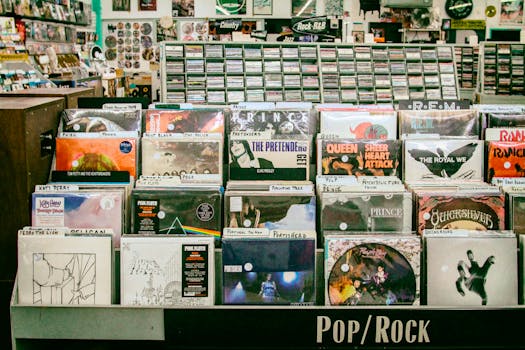
Exploring the History and Evolution of Popular Music Genres
Exploring the history and evolution of popular music genres is a fascinating topic that can take us on a journey through time and across the globe. With the rise of new technologies and the internet, music has become more accessible and diverse than ever before. In this article, we will delve into the history and evolution of some of the most popular music genres, from classical to rock, pop to hip-hop.
The history of music dates back to ancient civilizations, with evidence of musical instruments and compositions found in ancient Greece, Rome, and Egypt. However, the modern concept of music genres as we know it today began to take shape in the 18th and 19th centuries. During this time, classical music emerged as a distinct genre, characterized by its complex melodies and harmonies. Composers such as Mozart, Beethoven, and Bach created iconic works that are still widely performed and admired today.
The Rise of Popular Music Genres

In the 20th century, popular music genres began to emerge, with the rise of blues, jazz, and swing. These genres were characterized by their soulful and improvisational nature, and were heavily influenced by African-American musical traditions. The 1950s and 1960s saw the rise of rock and roll, with artists such as Elvis Presley, Chuck Berry, and Little Richard gaining widespread popularity. The 1970s and 1980s saw the emergence of new genres such as punk, new wave, and hip-hop, which were characterized by their energetic and rebellious nature.
Today, popular music genres continue to evolve and diversify, with the rise of electronic dance music, indie rock, and pop. The internet and social media have also played a significant role in the evolution of music, allowing artists to connect with fans and share their music with a global audience. With the rise of streaming platforms such as Spotify and Apple Music, music has become more accessible than ever before, and fans can discover new artists and genres with ease.
The Significance of Music Genres

Music genres are not just a way to categorize music, but also a way to understand the cultural and historical context in which it was created. Each genre has its unique history, significance, and cultural relevance, and can provide a window into the social, economic, and political conditions of the time. For example, the blues genre emerged in the Deep South during the early 20th century, and was characterized by its soulful and introspective nature. The blues genre was a way for African-American musicians to express their emotions and experiences, and to tell their stories of struggle and perseverance.
Similarly, the punk genre emerged in the late 1970s, and was characterized by its energetic and rebellious nature. Punk music was a way for young people to express their frustration and disillusionment with mainstream culture, and to challenge the status quo. The punk genre was also a way for women and minority groups to express themselves and to challenge the dominant narratives of the time.
Conclusion

In conclusion, the history and evolution of popular music genres is a rich and diverse topic that spans centuries and continents. From classical to rock, pop to hip-hop, each genre has its unique story and significance. By exploring the history and evolution of music genres, we can gain a deeper understanding of the cultural and historical context in which they emerged, and appreciate the significance and relevance of each genre. Whether you are a music enthusiast or just a casual listener, the world of music genres has something to offer everyone, and is a testament to the power and diversity of human creativity.




